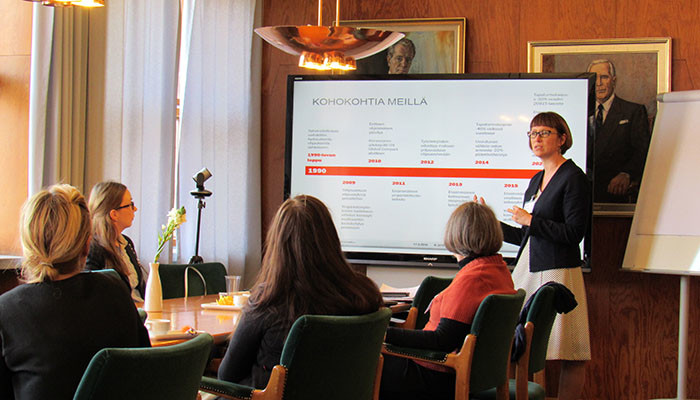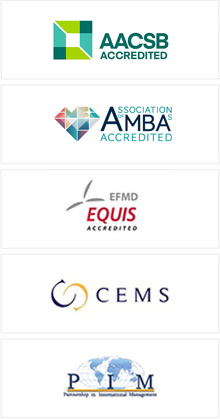Measurement of corporate social responsibility main topic at Knowledge Sharing Breakfast
How are the realisation and impact of corporate social responsibility measured?

How can a company gain a competitive edge and establish sustainable business by focusing and basing its activities on value thinking?
These were the key topics discussed at the most recent Knowledge Sharing Breakfast organised jointly by the Department of Accounting and Department of Management Studies on 14 April 2016.
Assistant Professor Hanna Silvola presented the newest research results on external verification that is separate from corporate social responsibility reporting.
'According to findings, voluntary external verification is still in the process of being developed, as the field has yet to establish common modes of operation. The EU Non-Financial Reporting Directive will enter into force at the beginning of 2017, which means that many companies have adopted a wait and see policy with regard to the development of corporate social responsibility reporting and its verification,' Silvola summarised.
Professor of Practice Armi Temmes in turn has touched on the potential benefits and challenges related to the assessment of corporate responsibility impact and the tools available for this.
'All the available tools have both benefits and drawbacks. From the perspective of learning, the process in itself is actually more important than the results, which can sometimes be misleading,' Temmes stated.
Johanna Pirinen, Director of Corporate Responsibility at Konecranes Oyj, represented the business world's perspective in the debate. She spoke about how Konecranes measures and reports on corporate social responsibility and what accomplishments and challenges the company has encountered in this work.
The topic seems particularly timely as it drew a good dozen invited guests to the School of Business lecture hall and discussion was lively. Finnair's Vice President responsible for Sustainable Development Kati Ihamäki emphasised that the instruments presently used for impact assessment must be more future-oriented. OP Bank's CSR Manager Satu Kuoppamäki, in turn, asked participants to define "ethical business".
The Knowledge Sharing Breakfast guest seminars are designed for business managers and decision- and policy-makers. They provide an opportunity to acquire the latest research data and engage in debate on current issues.


